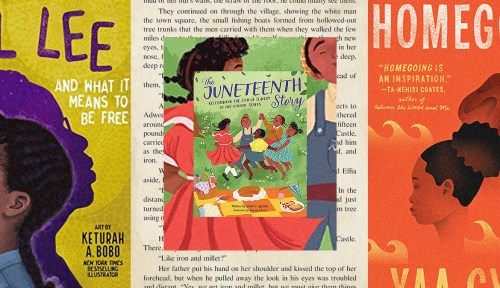Our editors independently select these products. Making a purchase through our links may earn Well+Good a commission
Juneteenth, which commemorates the end of slavery in the United States, is the newest federal holiday, but it’s hardly new. For those unfamiliar with the origin, traditions, and significance of Juneteenth, one effective way to learn is to read books about it.
Experts in This Article
assistant professor of Black Studies at the University of Missouri
As a refresher, Juneteenth is the day that Union Army troops freed the last enslaved people in Galveston Bay, Texas on June 19, 1865. Despite President Abraham Lincoln having already issued the Emancipation Proclamation in 1863, freeing enslaved people in Confederate states, and the Thirteenth Amendment legally ending slavery in the United States, not all enslaved people knew they were free.
“In Galveston, they had no idea until the Union Army came in, and they made proclamations and celebrated their freedom, and ever since, on June 19, celebrations have been held celebrating their emancipation,” says Willie Mack, assistant professor of Black Studies at the University of Missouri in Colombia. “They considered it their second Independence Day: the first one is July 4, 1776, and the second one was for the enslaved who unfortunately were not part of that celebration.” Since then, he says, the day has been embraced as a day of celebration by Black Americans, and “has constantly been celebrated in backyards, in churches, and at community events.” But, it’s important all Americans observe the significance of this day.
“[Juneteenth] speaks to the perseverance of African American communities in the United States and how there’s always been a sense of hope.”—Willie Mack, assistant professor of Black studies, the University of Missouri
Naming Juneteenth a federal holiday, says Mack, provides an opportunity to formally recognize both the triumphs and challenges Black Americans have faced. “The cycle of our African American history in the United States is celebratory on one hand, but then there is injustice and struggle on the other hand because you have these moments of joy, of emancipation and independence, followed by backlash,” he says. “But the struggle continues and it’s always moving forward. When we put Juneteenth in that context, it’s a celebratory time because it really speaks to the perseverance of African American communities in the United States and how there’s always been a sense of hope that hasn’t been extinguished yet.”
How reading books about Juneteenth are crucial for commemorating and celebrating it
Self-education about Juneteenth is of particular importance now, says Mack, because there are widespread attempts to obscure and limit the teaching of accurate history in the United States, which includes Black history—whether through laws, book bans, or otherwise.
“It’s always important to read and have that seeking spirit to understand not just history,” says Mack, of the importance of reading books about Juneteenth. Learning about Juneteenth shouldn’t be confined to any single day, but the occasion is an opportunity to spotlight its significance and meaning.
Below, booksellers at Black-owned bookstores around the country and other experts recommend books about Juneteenth that both touch on the history and origin of the day, and how it’s celebrated.
12 books to read to learn about and celebrate Juneteenth, recommended by Black booksellers and experts
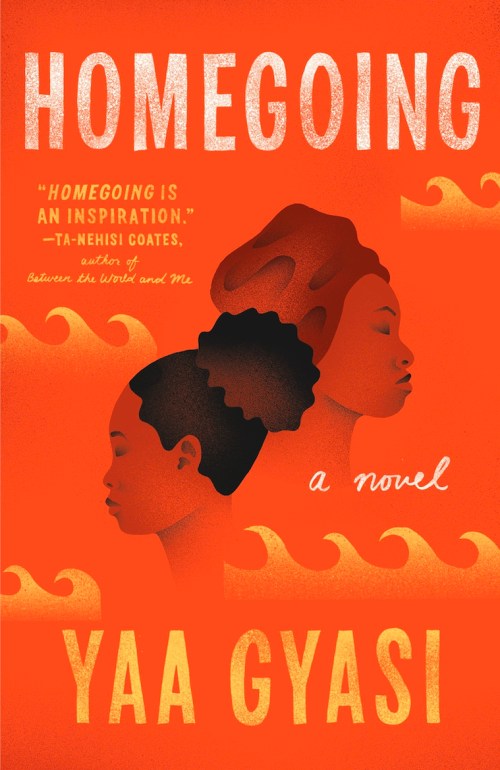
“Homegoing,” by Yaa Gyasi — $17.00
“Homegoing is the story of two half sisters who do not know of each other, journeying through massively different realities. One is sold into slavery and the other is married off to an enslaver, living in the very castle her sister is sold from. We follow eight generations of this family, both in Africa and in the United States as their shared destiny unwinds simultaneously.
“This book is not a Juneteenth history lesson—it is the history of the violent colonial and post-colonial world, which created the reality of a Juneteenth. There are so many twists and turns in this story, both in the lineage of the sister who remains in Ghana and the lineage of the sister sold into chattel slavery. It’s heartbreaking to see how freedom is always so close and so far away at the same time.
“Learning more about the wonders of celebrating Juneteenth and grieving what happened to make a Juneteenth both improbable and possible is wound up in this brilliant novel. The characters in Homegoing prove how alive the memory and impact of slavery is to the people they are descendants of, no matter how much time has passed or how much distance lies between our hope.” —EbonyJanice Moore, founder of Black Girl Mixtape and author of the forthcoming All The Black Girls Are Activists: A Fourth Wave Womanist Pursuit of Dreams as Radical Resistance
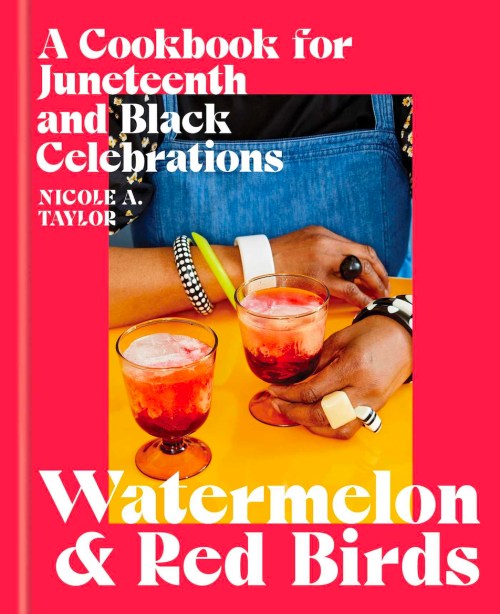
"Watermelon and Red Birds: A Cookbook for Juneteenth and Black Celebrations," by Nicole A. Taylor — $30.00
“This cookbook came out last May, just before Juneteenth, and it was one of our highlights. If you are a member of the Black community and looking for [a way] to celebrate, this is going to really do that because it’s a cookbook about celebration, food, and culture, but also about remembering the history of why you’re celebrating. The author talks about that in all her recipes.
“If you’re unfamiliar with Juneteenth, Watermelon and Red Birds will also give you information and talk about, [knowledge of] why these ingredients and dishes matter to this community, and give you a taste of Juneteenth.” —Nissa Moody, bookseller at Solid State Books in Washington, D.C.
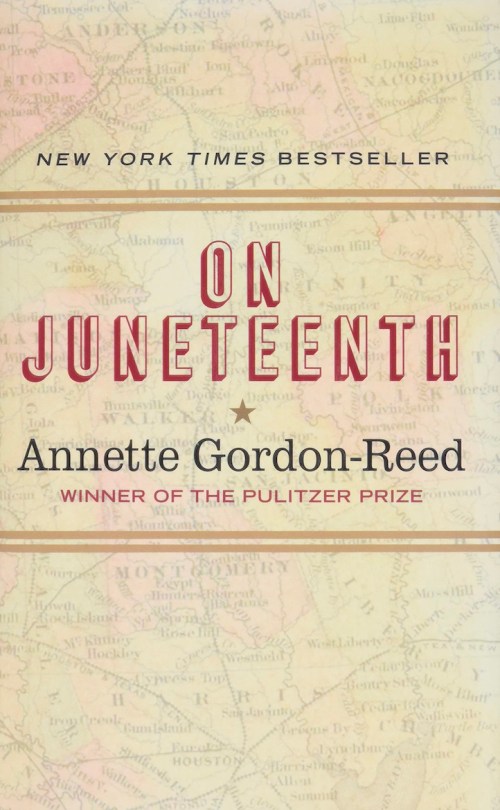
"On Juneteenth," by Annette Gordon-Reed — $16.00
“This book by Pulitzer Prize-winning historian Annette Gordon-Reed is a history of Juneteenth, but it’s also about her experiences growing up in Texas. She talks about the origin story of Africans in Texas, and the present day, and, most importantly, Juneteenth.
“It’s part memoir, part local history, and also part contemporary essay on the meaning of the myth of Texas. The book is not imposing, and it’s very easy to read. [Pulitzer Prize-winning historian] David W. Blight, who wrote the biography of Frederick Douglass, said that ‘if this country has a modern Shakespeare looking for material, Gordon-Reed has provided it.'” —Alyson Jones Turner, book buyer and events manager at Source Booksellers in Detroit, Michigan
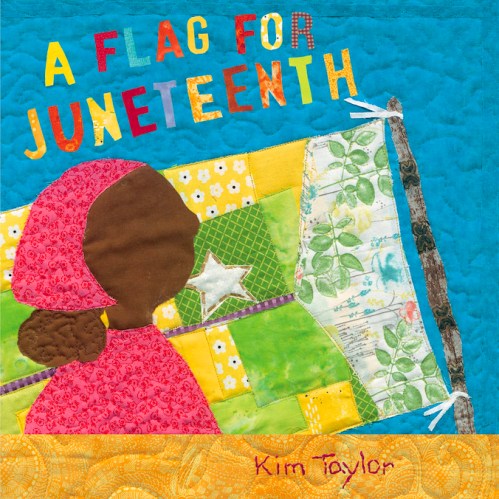
"A Flag for Juneteenth," by Kim Taylor — $19.00
“This picture book uses the practice of quilting, which is definitely an important piece of African American heritage, to talk about Juneteenth. It follows Huldah, a young enslaved girl living on a plantation, and her community as they learn about the news of their freedom by creating a community freedom flag.” —Jones Turner
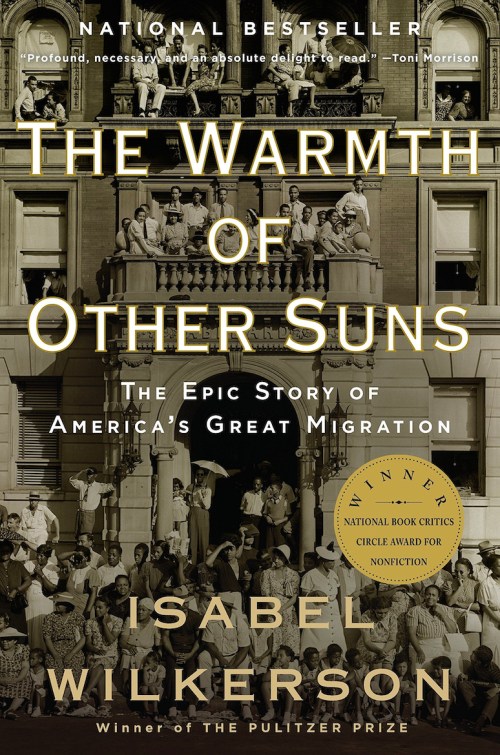
"The Warmth of Other Suns," by Isabel Wilkerson — $20.00
“Since it was published in 2010, The Warmth of Other Suns has been one my favorite books to recommend. It is a must-read anytime, anywhere—but especially as we celebrate Juneteenth. The book details the cross-country trip made by Black citizens to the North from the South and West after the emancipation of enslaved Black Americans, known as the Great Migration.
“The Pulitzer Prize-winning author interviewed over a thousand people and gained access to new data and historical records to write this account of this historical movement many Americans were unaware of.” —Bunnie Hilliard, founder and owner of Brave+Kind Bookshop in Decatur, Georgia
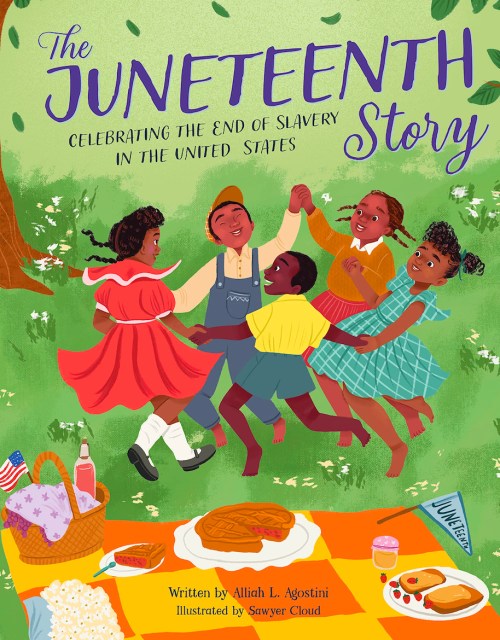
"The Juneteenth Story: Celebrating the End of Slavery in the United States," by Alliah L. Agostini — $19.00
“Gorgeously illustrated and bursting with bright colors, The Juneteenth Story celebrates the origins and evolution of Juneteenth and its place in American history, The author is a Harvard graduate whose grandfather was in the original Juneteenth celebration committee in the 1970s. This book is a perfect, read-aloud, historical lesson that belongs in every home and school library. ” —Hilliard

"Opal Lee and What It Means to Be Free: The True Story of the Grandmother of Juneteenth," by Alice Faye Duncan — $18.00
“This story talks about Opal Lee’s [the teacher who was instrumental in making Juneteenth a federal holiday] determination. When children read it, they’ll learn about how all people are created equal, the power of using your voice for change, the history of Juneteenth and what it means today, and that nobody is free until everyone is free.
“Through reading this book, they’ll also learn that fighting for dreams is worth the difficult experiences along the way. It’s really everything in one.” —Angela Nesbitt, founder and owner of Loving Me Books in Detroit, Michigan
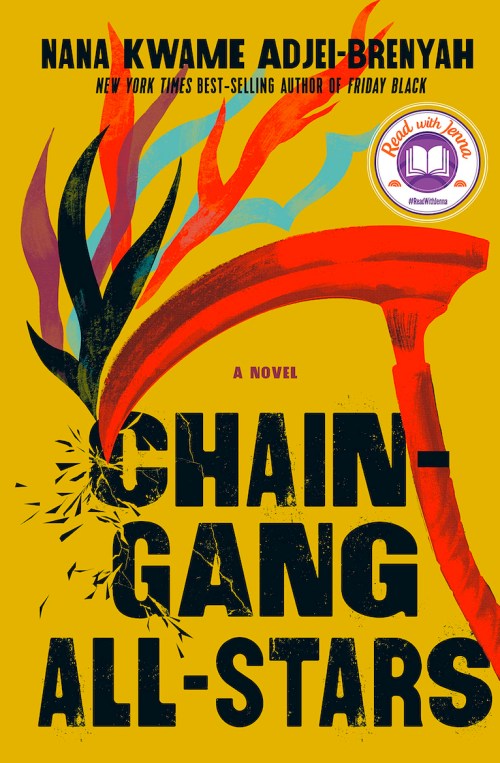
“Chain Gang All-Stars: A Novel,” by Nana Kwame Adjei-Brenyah — $27.00
“Chain Gang All-Stars is a reflection of America’s penal and justice system, and is important for everyone to read to abolish the cop in our own heads. Adjei-Brenyah introduces different narratives and perspectives of the CAPE [Criminal Action Penal Entertainment] program that challenges the prison industrial complex. This novel is a cross between Gladiator and The Hunger Games, and will keep you on your toes.” —Kris Moua, manager at Black Garnet Books in Saint Paul, Minnesota
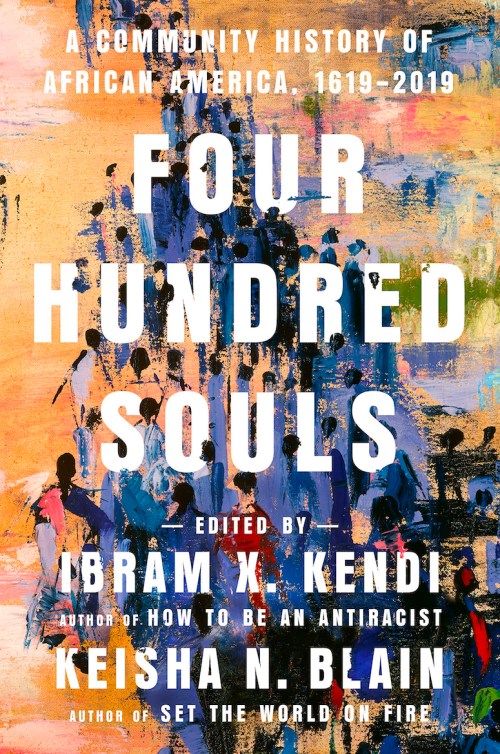
"Four Hundred Souls: A Community History of African America, 1619-2019," by Ibram X. Kendi and Keisha N. Blain — $20.00
This book is a collection of essays, commentary, personal reflections that paints a chronological picture of the African American experience in the United States, beginning from when the first enslaved people were brought to Virginia in 1619 to the present day. The anthology includes writing from 90 Black writers, including Nikole Hannah-Jones, the Pulitzer Prize-winning journalist and author of The 1619 Project, and Raquel Willis, trans activist and author of the forthcoming memoir The Risk It Takes to Bloom: On Life and Liberation. Each author’s contribution covers five years of the 400 year story.
“This is a community history of African Americans in the United States from 1619 to 2019. I highly recommend this book because it’s not so academic, and is oriented toward a popular audience.” —Willie Mack, assistant professor of Black studies at the University of Missouri in Colombia
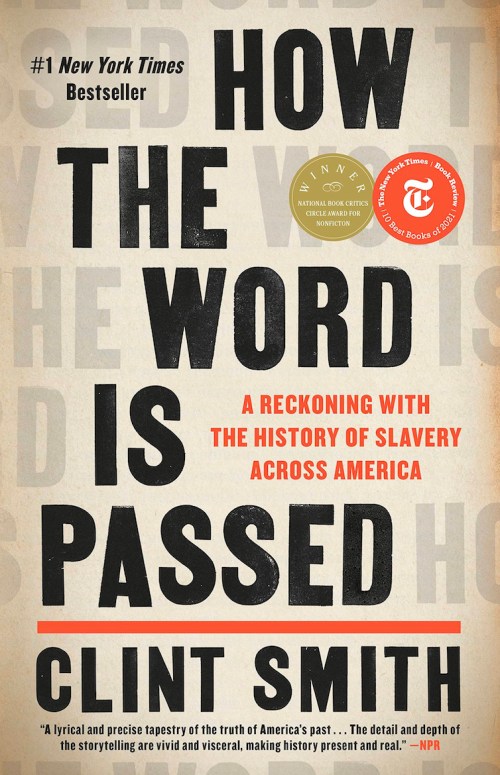
"How the Word Is Passed: A Reckoning with the History of Slavery Across America," by Clint Smith — $19.00
“In order to truly understand and celebrate Juneteenth, we must remember, reflect and reckon with the history of slavery in America. How the Word is Passed: A Reckoning with the History of Slavery Across America is a must-read because it explores the history of slavery and how some of our country’s most essential stories are hidden in plain view.” —Donna Craddock, co-owner of The Dock Bookshop in Fort Worth, Texas

"The Night Before Freedom: A Juneteenth Story," by Glenda Armand — $19.00
“This book is written in a rhythmic style in the format of The Night Before Christmas. I think the familiar tune is creative and will be memorable for people to learn about Juneteenth. The illustrations and the colors are beautiful as well.
“The more people know, the more they’ll understand how African American history is American history and that you can’t tell one without the other. It’s important that children are aware from a very young age of the journey of how we got to where we are today and can appreciate the challenges, as well as celebrate the victories. If that understanding is the foundation, I think that puts them in a better position as they mature to understand why things are the way they are and to help address the problems of today and tomorrow. ” —Jeffrey Blair, co-owner of Eye See Me African American Children’s Bookstore in University City, Missouri
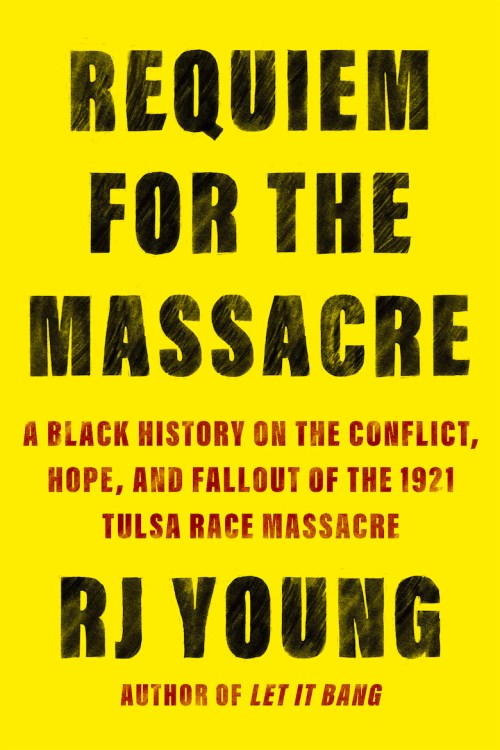
"Requiem for the Massacre: A Black History on the Conflict, Hope, and Fallout of the 1921 Tulsa Race Massacre," by RJ Young — $27.00
“This book is a Black history on the conflict, hope, and fallout of the 1921 Tulsa Race Massacre. Reading this will give people an understanding of what was going on, even after enslaved people were freed. This is a good place to start.” —Keenan Coke, fellow at Fulton Street Books & Coffee in Tulsa, Oklahoma
Sign up for the Well+Good SHOP Newsletter
Get exclusive deals on wellness, beauty, fitness, and food products that have been hand-picked by our editors.
Got it, you've been added to our email list.
